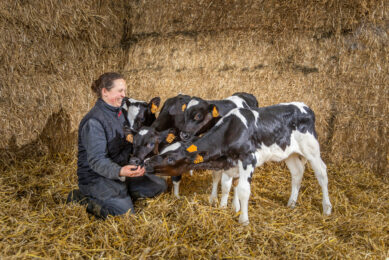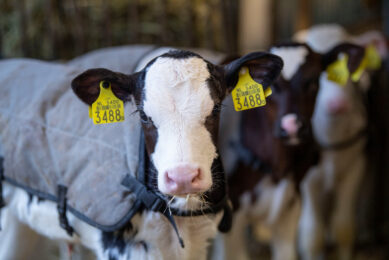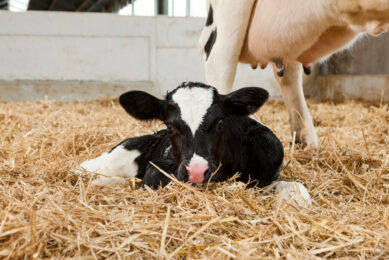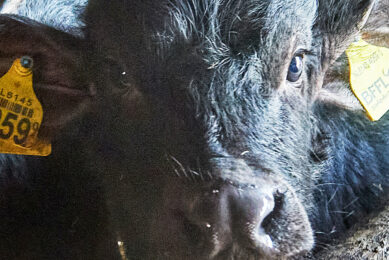Understanding and preserving gut health
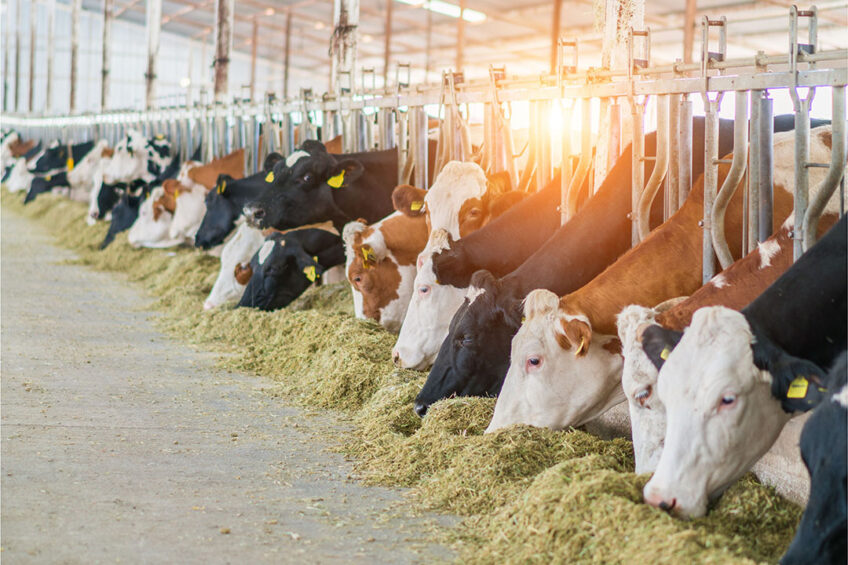
Each year, the global livestock industry spends millions on nutrition-related expenses. These include research, trials, product development, marketing, and consultation. Such investments are a cornerstone of animal health and production, but every effort to perfect nutrition will be meaningless unless gut health is considered and supported.
Part of the Gut Health 2022 Special
A healthy gut enables an animal to make the most of every dietary nutrient fed. This is absolutely essential for long-term health and performance metrics such as weight gain and reproduction. Poor and neglected gut health not only wastes feed and money, but also suppresses growth, immunity, and other metabolic functions. Fortunately, there are a wide variety of simple, cost-effective ways in which farmers and livestock health and nutrition professionals can establish and preserve the digestive system and its microbiome.
What is gut health?
Lots of stressors can negatively affect the gastrointestinal barrier, making the immune system an easy target for pathogens. In his bulletin, Gut Health in Cattle, Nathan Briggs, a former beef extension educator at Penn State University, notes that typical stressors on the farm are weaning, transportation, feed restriction, acidosis and excess heat.
All animals will encounter stressors. Some are unavoidable. But if certain stressors can be eliminated, or reduced, the impact on the immune system and digestion can be mitigated. In addition to good handling and management practices, facility designs that eliminate added stress, such as proper lighting, minimal disruption and comfortable pens, also greatly reduce stress-related issues.
In cattle, sheep and goats, maintaining rumen health is key. This organ, where fermentation takes place, is often the main focal point of their digestive system. However, good gut health in ruminants must involve the whole digestive tract, from start to end. The wall of the rumen has multiple layers, while the intestines are single-layered. Because of this, the intestinal tract relies on a healthy immune system to prevent dangerous pathogens from penetrating it and invading the rest of the body. In his bulletin, Briggs also reminds us that energy used to protect could otherwise be used for other purposes, such as production or growth. A healthy ruminant digestive tract will do the following: optimally absorb nutrients, promote a strong immune system, protect intestinal structure integrity and preserve microflora. These key principles also apply to monogastric species like swine.A leaky gut (or otherwise compromised gastrointestinal tract) increases the risk of pathogen interference and also reduces absorption of nutrients. This can be caused by a variety of bacterial and viral illnesses.
Setting youngstock up for success
Youngstock are no exception to gut health. At birth, animals are born with a weak immune system. They need to consume first milk, or colostrum, from their mother to boost immunity. Colostrum is rich in antibodies, which are absorbed through openings in the small intestine and essential for kickstarting the immune system. Dr Shelby Roberts, a beef research scientist at Alltech, says in her blog post A Winning Strategy for Calf Gut Health, “Calves that have both strong immune system development and a healthy gastrointestinal tract will be better able to utilise nutrients efficiently and reach their genetic potential.” Besides ensuring that colostrum is received in the early hours of life, livestock managers can also support healthy digestive development by maintaining a healthy environment with minimal contagions, adopting a routine vaccination protocol and administering probiotics and prebiotics in times of distress.
Preventing gut-related issues
Prevention starts with understanding the various factors that influence or are associated with gut health. This includes:
- diet
- digestion and absorption,
- welfare
- effective immunity.
Diet plays a major role because it provides the nutrients and additives that enter the digestive system and can potentially alter it, for better or worse. This involves the digestion and absorption role necessary for them to function in the body. However, if immunity is compromised, the effectiveness of both these functions can be impacted.
Manage & support a healthy gut
Good animal welfare and husbandry practices, such as disease prevention and management, can help support strong immunity. Some key ways to manage and encourage a healthy gut include preventing dehydration, promoting probiotics (beneficial gut bacteria), and using prebiotics in feed additives, notes South Dakota State University Extension Veterinarian Russ Daly in his bulletin Keeping the Dairy Cow Healthy Means Keeping Her Gut Healthy.
One way to maintain or build microflora is to use direct-fed microbial products. These types of products can be especially helpful when used right after weaning. Another way to help maintain a positive gut environment is the use of volatile fatty acids (VFAs). Higher VFAs can increase pathogenic resistance by reducing gut pH. They also are an energy source the gut tissues rely on, says Mark Whitney, former extension education with Minnesota State University, in his article Good Gut Health Can Help Prevent Disease in Swine.
Proactive vs reactive
A properly functioning gut benefits much more than optimal digestion absorption. It also provides a barrier against unwarranted pathogens. The healthy bacterial population, according to Daly, will remain stable and help the immune system have the appropriate response when a pathogen does try to invade. Being proactive is much better than being reactive. Not only does it save you time, but it also ensures full and healthy animals will be marketed or high-producers raised.
Previously, antibiotics were heavily used in livestock to help keep animals disease free and grow larger. As a substitute to antibiotics, countries like the United States began using probiotics, prebiotics, postbiotics, feed additives and feed enzymes, notes a University of Delaware publication titled Livestock Gut Health. These substitutes have all repeatedly shown benefits in maintaining a healthy microbiome. Besides profitability, good nutrition should focus on keeping the animals’ gut healthy and functional across its lifetime. Doing so will result in enhanced animal welfare and better performance as well.
Join 13,000+ subscribers
Subscribe to our newsletter to stay updated about all the need-to-know content in the dairy sector, two times a week.



